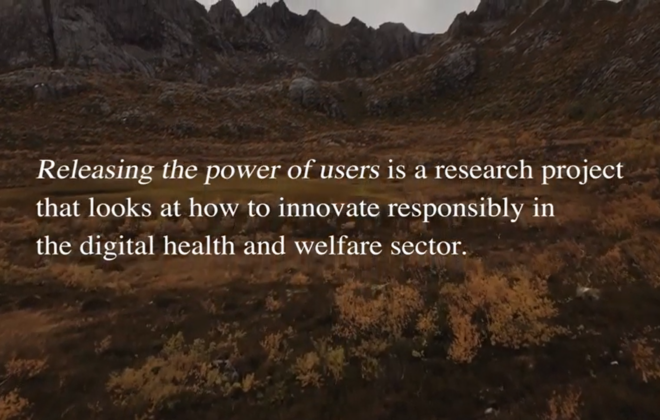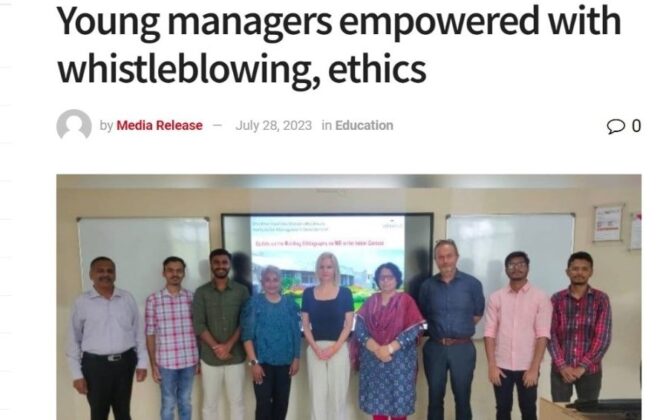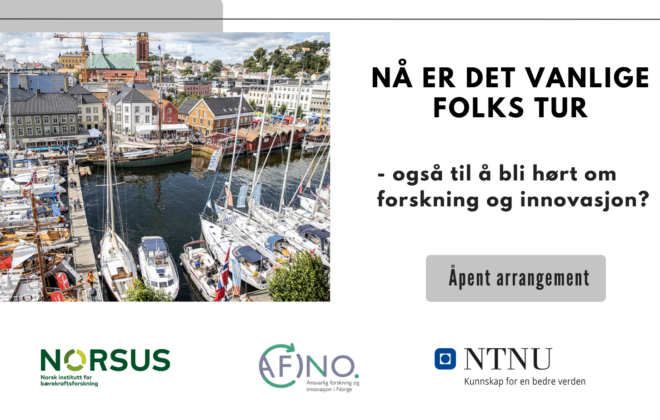Good information is required for good decision making: Why transdisciplinarity matters
This blog post was first published on KOI TU: The Centre for Informed Futures’ webpage (University of Auckland) on May 19th, 2020. It is coauthored by Matthias Kaiser, Tatjana Buklijas, Kristiann Allen, Anne Bardsley, Cynthia Kiro and Peter Gluckman.
The COVID-19 pandemic has highlighted for many the value of the natural, data and social sciences and of the normative disciplines for good public policies, particularly during times of crisis. In many countries the focus of scientific input was initially on virologists, epidemiologists and modellers to communicate about both the science of what was occurring, and what responses were required and why. As this has been in the public gaze, people have learned a great deal more about zoonotic viruses, RNA, genetic mutations, herd immunity and vaccinations, than they might ever have thought possible. But behavioural and psychological science was also important in evaluating different social constraint possibilities, and modelling was shown to need these inputs.
Public health advice may have provided us the strategies to contain and then supress the virus, but the effects have created significant other trauma through lockdowns and travel suspensions that have significantly disrupted the global order. The social and economic consequences are pervasive. In the words of ex-UNDP Director, the Rt. Hon. Helen Clark, the COVID-19 pandemic has “gone beyond being a health crisis to being a full-blown economic and social crisis.”[1] How we balance these tensions is an important part of retaining public confidence and trust which enables populations and countries to deal with such crises.
In countries such as Germany, natural scientists were joined from the outset in dealing with the pandemic by experts from social sciences and even normative disciplines like philosophical ethics. This transparent inclusivity of a range of perspectives was not, however, universal. While we share the belief that good science should support good policy, we think that a certain amount of reflexivity and critical analysis of how advice is supplied is essential. This is important if the science community is to do better at delivering on the promise of policy impact, both in times of crisis and otherwise. Such analysis will undoubtedly detect more ambiguity, and also an emerging a call for improvement of current practices and processes[2]. To explain further:
- It is worth remembering that science has always been an assembly of differing voices. The scientific community is built around a system of validating knowledge claims through peer scrutiny, something R.K. Merton called “organized scepticism.”[3] In other words, individual claims of knowledge, even when coming from reputable scientists, do not necessarily qualify as good science. Add to this that the progress of science is fuelled through the diversity – and creativity – of individual scientists pursuing different paths to develop their field of knowledge. Trial and error, involving bold hypotheses and solid testing as Karl Popper has proclaimed,[4] as the engine forward. Therefore, at any given time the public will be listening to a variety of scientific voices – if not a cacophony, then at least a disharmonious attempt at a symphony. Policy makers may similarly have their ears ringing, and that is why the skills of evidence synthesis and brokerage are important at the science-policy interface.[5]
- While we as researchers are rightfully proud to produce knowledge, we are also mostly quiet about that fact that the knowledge we produce comes with significant amounts of uncertainty and complexity. New knowledge produces new uncertainties, and the belief that we, by and by, come to chart and understand all the unknowns is an illusion, albeit perhaps a useful one in some quarters. Once we understand why closed systems such as models never can capture the complexities of intrinsically open systems like reality, we will realize that we have to live with and manage these uncertainties. Science helps by framing what it is we hope to know and then seeking to at least reduce the uncertainties within those parameters.
- In addition to the institutional and normative workings of the scientific community, there are the psychological and sociological mechanisms working on scientists. During the pandemic we can see that the pursuit of science is at times not just about establishing an objective ‘truth’. We’ve also seen the race between some scientists to come closer to power, to experience a boost of ego, maybe to receive an award, and to consolidate their scientific standing in order to secure funding for their future research activities. Persuasive arguments may prevail about the pre-eminence of certain types of knowledge over others in weighing up decisions. In other words, what emerges as the filtrate of all the scientific contributions during this crisis is more than just the evidence, but also the variety of human natures behind it.
- Lastly, we need to discuss science-for-policy. Providing scientific evidence to advise public policies often confronts situations where the facts are uncertain, the stakes are high, the values are in dispute; yet we still have to make urgent decisions. This is what was called post-normal science by Silvio Funtowicz and Jerome Ravetz in 1992,[6] and that we may now recognize as the ‘new normal’ in much of our science advice.
These four points together explain something of the milieu within which science and policy advice, occurs. In trying to explain this comprehensively, we want to put forth one major claim: the science we need for good public policy is by necessity a transdisciplinary science.
Characterizing transdisciplinarity
Transdisciplinarity (transdisciplinary research) is understood here as comprising the following features:
- Ab initio commitment to the framing of the question by integrating different domains and disciplines of knowledge, even when this means working across different theoretical perspectives and methodological practices.
- A focus on real-world problems, where context and complexity are recognised and confronted as part of the methodology.
Transdisciplinarity should be distinguished from both multidisciplinarity and interdisciplinarity, and it transcends mere convergence of disciplines. In contrast to transdisciplinary research, multidisciplinarity is an uncommitted collaboration between different disciplines where experts use their traditional ways of addressing problems while maintaining their respective disciplinary perspectives. Interdisciplinarity generally works at the interface between a small number of pre-defined disciplines as a collaboration of different experts, with the aim of developing the most appropriate – and singular – approach, reflecting the parent disciplines. In other words, Interdisciplinarity and multidisciplinarity still frame the problem from their disciplinary origins and then try and work together.
Transdisciplinary research, in contrast, does not start from a disciplinary bias and is agnostic to which disciplines must be engaged. It is therefore open to diverse epistemological and ontological perspectives from across and beyond the social and natural sciences.[7]Transdisciplinary research is typically called upon to address “wicked” problems[8] in the classical sense: “problem understanding and problem resolution are concomitant to each other” (Rittel & Webber 1973). It is core to post-normal science where an integration of human values and behavioural dimensions is crucial to finding acceptable pathways forward.
We acknowledge that this openness towards a broad range of disciplines is often seen as difficult or problematic, because the joint work of disciplines with different terminologies, and even incommensurable aims and theory, is hard. Typically, academics tend to be good at diagnosing problems of a complex nature (e.g. sustainability issues), but are often less adept at proposing workable solutions, as defined by being effective, scalable, socially robust and with a reasonable range of spill-over effects, both positive and negative.[9]Increasingly impact and applicability are viewed as essential components of publicly funded research, so as communities of researchers, we are getting better at it. Transdisciplinarity helps to better position academics, and universities, to contribute to solutions because it helps to integrate and reflect more real-world circumstances than traditionally reductive single-discipline perspectives. Academic silos are rarely of great help in crises like the current pandemic.
In what ways can transdisciplinarity contribute?
Transdisciplinary research tends to focus less on the problem framings of the various disciplines, and more on what emerges from the problem framings as they are voiced by the recipients of scientific advice. Typically this is also the key to realizing the complexity of the issue. For example, what first appears as the problem of a virus from strictly a virology perspective, now involves global connectivity of economic and cultural systems, individual compliance issues with rules, questions of social cohesion, ethical acceptability, and legal admissibility, to name just a few. Effectiveness of proposed interventions is not based solely on simple outcome measures (e.g. number of cases), but weaved into a web of social transactions where facts and values are intertwined. Even data sampling turns out to be a highly complex issue: what is the appropriate scale of sampling data for differentiating between, and providing good assessments of basic viral reproduction number (R0) and effective reproduction number (Reff)? What are the relevant system boundaries on which we base our assessments? In transdisciplinary research we make decisions on these complex and uncertain points by having all kinds of expertise around the table.
The experts in transdisciplinary research will account for both technical uncertainties (e.g. error bars etc) and methodological uncertainties (most appropriate techniques for sampling evidence, e.g. via triangulation of methods). But in transdisciplinary research science, there is also a capacity for deeper epistemic uncertainties. This refers in part to what some philosophers have called different styles of reasoning[10] within both the research endeavour, including local and traditional knowledge systems. Transdisciplinary science respects these different types of rigorously derived knowledge as possible contributions to the common effort to design strategies and solutions to the problem.
This is not just empty rhetoric; there are good examples that show the way. Take for instance the recent thesis from the Victoria University of Wellington, by Kimberley Hera Maxwell on: “Informing Ecosystem-Based Fisheries Management from an Indigenous Perspective: The Mōtū Kahawai Fishery” (2019). The author crosses traditional boundaries of scientific inquiry and puts forward a thorough transdisciplinary analysis. This merging of traditions of thought and styles of reasoning has also been ´described as the “Braided Rivers Approach”[11], which is the process of deliberation between a scientific and a Māori approach to a given problem. Transdisciplinary science builds bridges to alternative knowledge systems and seeks common solutions in deliberations.
A further feature of transdisciplinary research has hopefully already emerged from the above. Namely, it is that transdisciplinary research is essentially a bottom-up endeavour to elaborate a problem from multiple perspectives, and to deliberate and test in eclectic and heterogenous ways, driven by a shared curiosity to better understand and attend to the complexity of our world. In this sense transdisciplinary research is allergic to predefined political or cultural constraints. Transdisciplinary research offers options for understanding and managing our world, but it stops short of making the heavily value-laden normative recommendation on what options to pursue.
Conclusion
It is our understanding that the current pandemic does indeed clearly show the benefits of good science for good policies, while an off-shoot of the crisis is also an understanding of shortcomings within our traditional scientific culture. At the same time we see that carefully constructed transdisciplinary approaches can offer precisely those features that we believe are needed in order to move from a noisy background of scientific advice to a more informed consensual advice incorporating the best of the knowledge we have. This is particularly critical if we are to deal with the multiple, complex dimensions of disruptions such as pandemics, climate change, and growing inequality.
Our argument is not to scrap reductionist approaches and disciplinary excellence we have built up over the years, as these are still needed. Rather we propose to complement this with innovative efforts to constructively interact with real societal problems in the company of diverse knowledge holders and stakeholders. When things get complex and uncertain (which they almost always are), we see no other choice but to engage in this new effort to construct useful knowledge for understanding and management by evoking all aspects of the problem and all knowledge inputs and epistemic traditions. This is what transdisciplinarity is about as we understand it.
Read the original post for a full list of references.
Featured image: Unsplash

Matthias Kaiser
Tags In
Related Posts
2 Comments
Comments are closed.





What a amazing write-up, I didn’t sense that you may locate one thing underneath. A pleasant surprise, it occurs seldom, but the following we can speak of a real bonus value towards person who reads. What Infuriate me about sites usually amateurish piece without owning huge type and with errors. below I am pleasantly surprised. Hopefully make it to some authors, and write for their visitors and not to own anything at all on the internet access!
After read a couple of the posts on your site now, and I really like your way of blogging. I tag it to my favorites web site list and will be checking back soon. Please check out my web site as well and let me know your opinion.